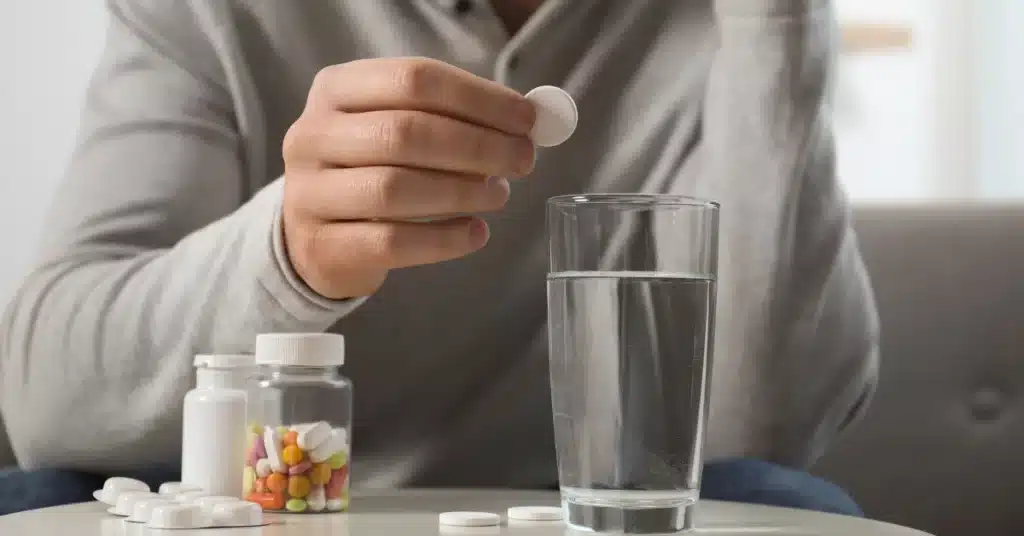Understanding the Duration: How Long Does Temporary Erectile Dysfunction Last
Temporary Erectile Dysfunction, a perplexing and distressing condition for many men, raises questions about its transient nature and duration.
Occurring sporadically involves difficulty achieving or maintaining an erection during sexual activity.
The duration of this condition varies and is influenced by many factors, including stress, anxiety, lifestyle, and underlying health issues.
For some, it may resolve swiftly; for others, it can linger, causing concern and affecting relationships.
In this exploration, we will delve into the factors determining the longevity of temporary Erectile Dysfunction.
We will shed light on how long does temporary Erectile Dysfunction last to mitigate its impact on one’s sexual well-being.
Temporary Erectile Dysfunction
Temporary Erectile Dysfunction (ED) is not an officially recognized medical condition; rather, it is a broad term used to describe instances of ED that occur briefly and then spontaneously resolve.
According to some researchers, a formal diagnosis of Erectile Dysfunction should only be considered if an individual experiences symptoms persistently for a minimum of six months.
Under this definition, temporary ED refers to cases where symptoms improve within six months.
Typically, temporary ED arises due to factors such as medication use or underlying medical conditions that induce ED.
The resolution occurs upon discontinuing or successful treatment of the underlying medical issue.
Additionally, situational factors, often linked to anxiety related to a particular circumstance, can trigger temporary ED.
Once the triggering situation is resolved or the associated anxiety diminishes, normal sexual function is typically restored.

Symptoms
Erectile dysfunction is characterized by:
- Inability to achieve an erection when desired (or when it’s typically expected, such as during sleep or upon waking in the morning)
- Premature loss of erections occurring more rapidly than either you or your partner find conducive to satisfying sexual activity
These symptoms remain consistent whether you have been grappling with ED for an extended duration (e.g., longer than six months) or if you suspect it is a temporary issue.
Researchers do not establish a specific timeframe for defining the rapidity of erection loss that qualifies as ED.
Instead, it is a matter for you and your partner to gauge whether the duration of an erection is sufficient for mutually satisfying sexual intercourse.
This duration can vary significantly among individuals, underscoring the significance of your personal experience in diagnosing and managing ED.
Causes

Temporary ED can stem from various potential causes, including:
- Medications: Certain drugs can induce ED, which often resolves upon medication discontinuation
- Medical Conditions: Specific health conditions may lead to ED, but treatment can restore normal function
Common medications contributing to ED include SSRIs (selective serotonin reuptake inhibitors, a prevalent class of antidepressants), antipsychotic medications, certain blood pressure drugs, and opioids.
Instead, discuss the possibility of safely transitioning to an alternative medication to manage your condition.
In some cases, low Testosterone levels can play a role in ED.
However, addressing low Testosterone can be intricate for men aiming to conceive because Testosterone Replacement Therapy (TRT) can reduce sperm production.
Some individuals opt for Clomid, a drug that elevates Testosterone levels without impacting sperm production.
Others may postpone TRT until they have completed their family planning.
Nonetheless, ED linked to low Testosterone is typically temporary and tends to resolve once the underlying condition is effectively treated.

Conclusion
Temporary Erectile Dysfunction can be a complex and distressing experience, with its duration influenced by various factors, including stress, anxiety, lifestyle, and underlying health conditions.
While it is not officially recognized as a medical diagnosis, it’s important to acknowledge its impact and seek appropriate guidance.
Understanding that it can arise from medication use, medical issues, or situational factors is crucial.
The duration of temporary ED varies, but it can often be resolved with the right interventions and support.
Communication with a healthcare provider and addressing the underlying causes are key steps in managing and overcoming this challenging condition, promoting a healthier and more fulfilling sexual well-being.
Frequently Asked Questions
How long does it take to recover from Erectile Dysfunction?
Regular physical activity offers several benefits for combating Erectile Dysfunction (ED). Exercise can elevate Testosterone levels, enhance blood circulation, and lower stress levels, all contributing to ED relief. Typically, individuals can anticipate noticeable improvements in their condition within two to four months.
How frustrating is Erectile Dysfunction?
Erectile Dysfunction can trigger a range of emotional responses in men, including anger, frustration, sadness, and diminished self-confidence. Learn effective strategies for coping with these emotions, addressing relationship challenges, and maintaining a satisfying sex life in the face of ED.
Is occasional Erectile Dysfunction normal?
Many men experience occasional difficulties in achieving or maintaining an erection, often attributed to stress, fatigue, excessive alcohol consumption, or medication side effects. Typically, these occurrences are not a cause for significant concern.






